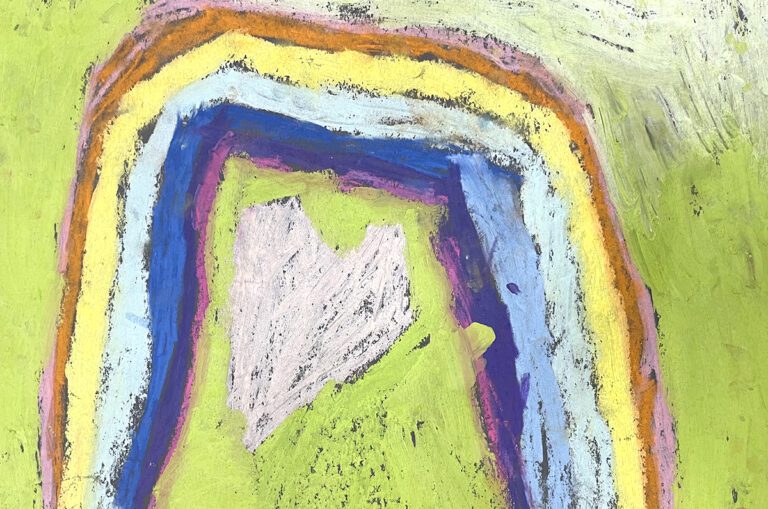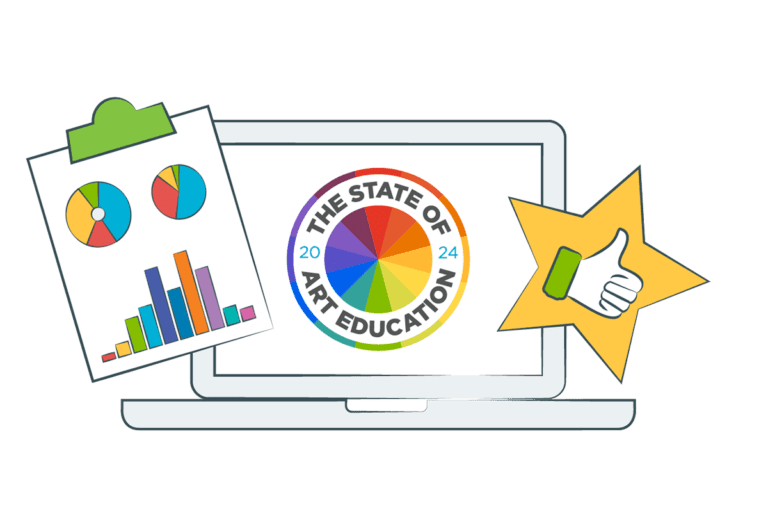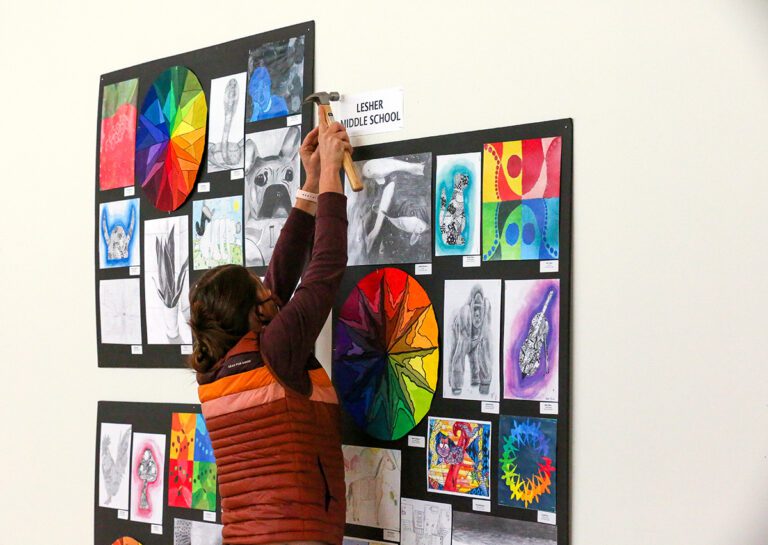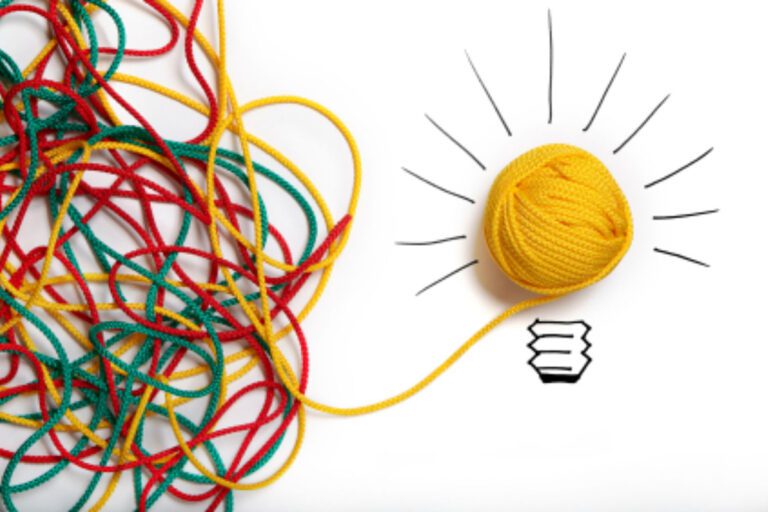Parent Night is probably right around the corner for many of you as we get ready to launch into a brand new school year. If you are anything like me (and I suspect a lot of you are) you know Parent Night can be kind of a drag. Parents and students find their new teachers and classrooms, but tend to skip right by the art room. Don’t you want them to see everything that will be happening in your room too? I know I did. That’s why I made the art room a must-stop on parent night by using these 3 tips.
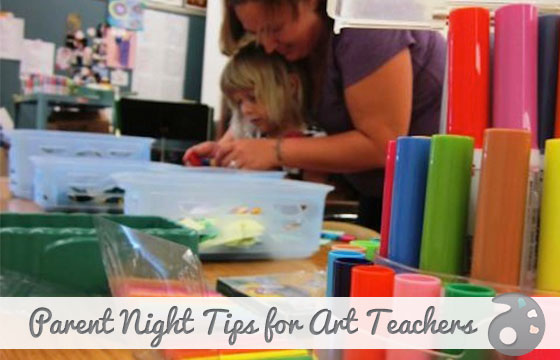
1. Advertise!
Put up some signs around the school inviting parents to you room. Put up a big one right outside your door welcoming families in. Ask teachers to direct families to your room before they leave for the night.
2. Make Art!
Set up a creative activity that parents and students can work on together. I put up my Friendly Loom and put out markers and crayons to complete a collaborative mural based on our school theme for the year. I was able to talk with parents about the kinds of skills I taught and show them first-hand the sorts of lessons we do. I had two rules: 1. Students had to have a parent with them to participate (no one could be running around without supervision) and 2. Everything had to be left as it was found. By holding parents and students to these rules, we were all on the same page about the way I conduct our classroom.
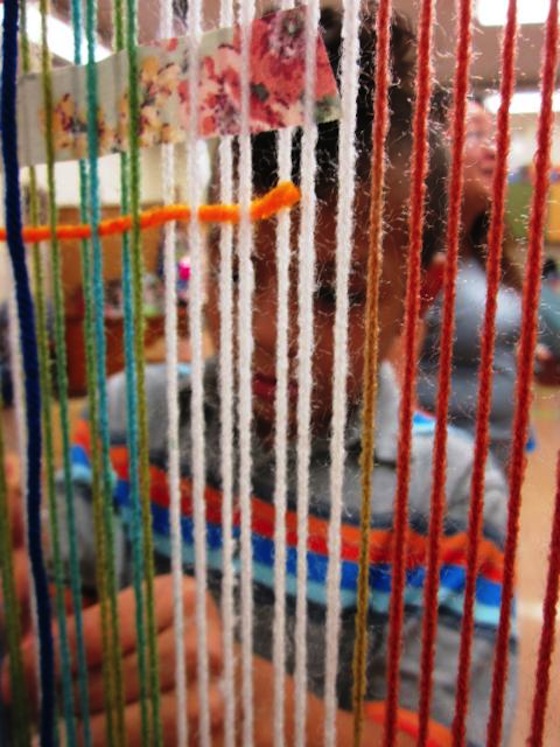
3. Talk, talk, talk!
Sometimes Parent Night is the only chance you’ll have to meet a parent face-to-face. Don’t let this incredible opportunity pass you by! Find out about your students’ families. Ask if anyone has any artists in the family. Have a sign-up ready for parent volunteers. Really push your parent networking skills.
By inviting parents and students for an opportunity to make a little art and experience the art classroom, you can go a long way to establishing positive relationships.You never know when you might need them!
How do you get parents involved in your classroom?
What does Parent Night look like at your school?
Magazine articles and podcasts are opinions of professional education contributors and do not necessarily represent the position of the Art of Education University (AOEU) or its academic offerings. Contributors use terms in the way they are most often talked about in the scope of their educational experiences.

